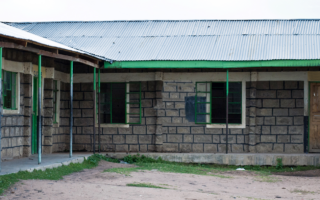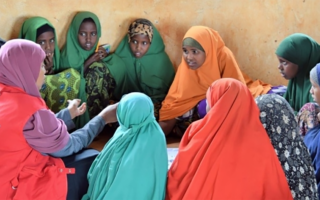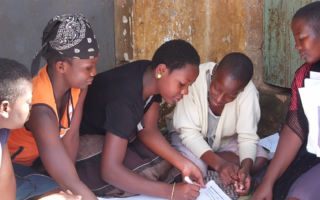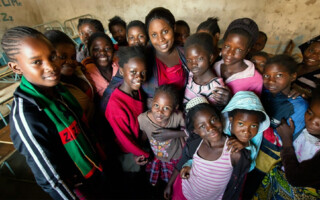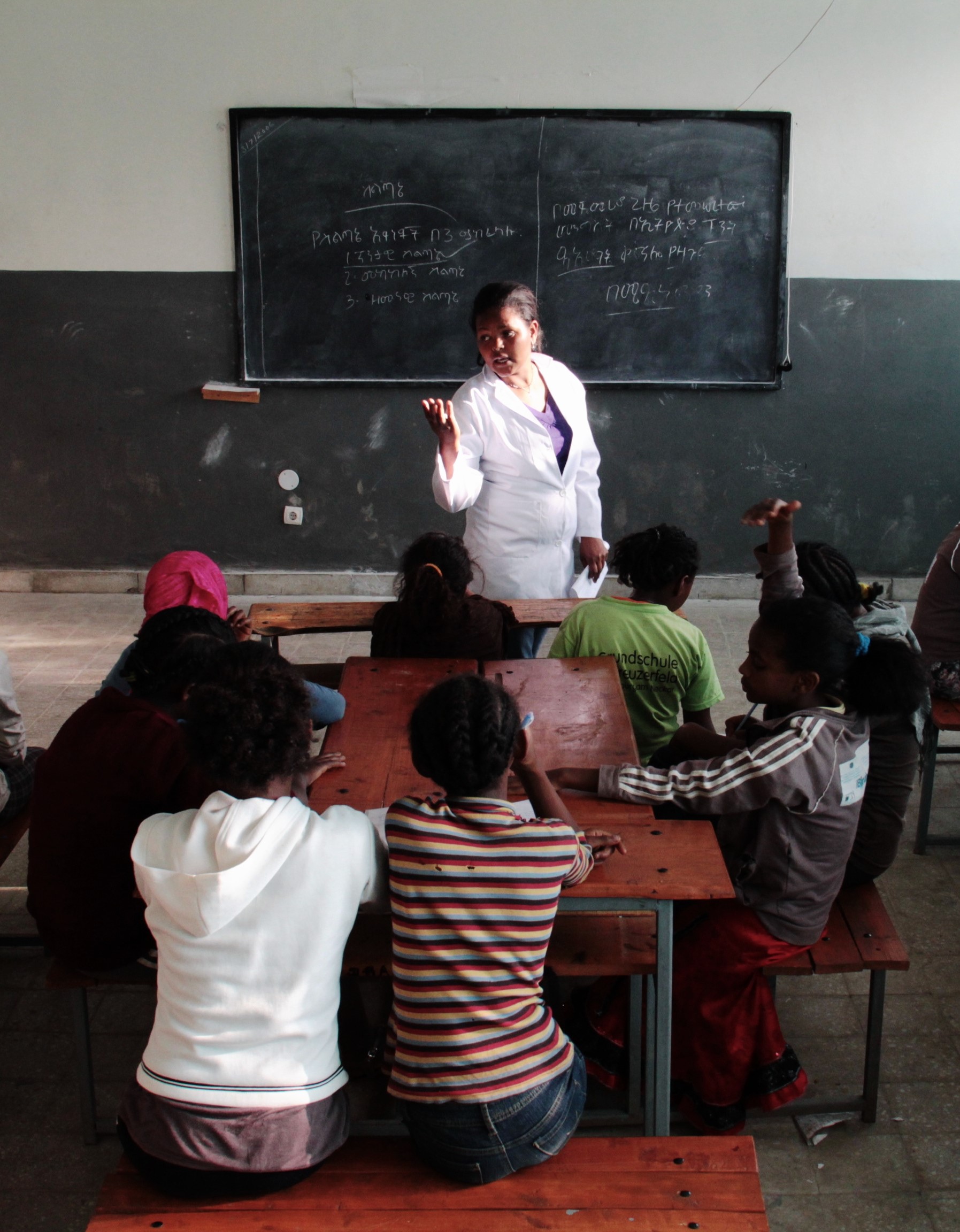
The Biruh Tesfa Project established safe spaces girls’ groups for out-of-school migrants and domestic workers in low-income urban areas of Ethiopia.
Biruh Tesfa (Bright Future) was among the first projects to highlight the isolation and vulnerability of adolescent girls and young women in domestic work. Since 2006, the Biruh Tesfa Project has been implemented in 18 cities (at various times), across four regions of Ethiopia.
Why it Matters: Through the years, the project has contributed significantly to our understanding of the realities for the large number of girls in domestic work, globally; and how best to reach them with programs, support, and alternative livelihood pathways. Safe spaces girls’ groups are mobilized in low-income urban settings that attract large numbers of migrant girls, many of whom migrate on their own, armed with little in the way of education, skills, social networks, or support. A significant number of such migrants support themselves through domestic work.
The Approach: This project ran from 2006 through December 2022.
Through Biruh Tesfa, adult female mentors recruited from project communities mobilize girls by making house-to-house visits to identify out-of-school girls aged 10-19. These household visits allow mentors to negotiate for girls’ participation in the project, including with the employers of domestic workers and other gatekeepers who may be resistant to girls’ participation. Once in groups, girls receive training on literacy, numeracy, life skills, financial literacy, reproductive health, and HIV/AIDS. Medical services are subsidized through the project using a voucher system and girls who pass the government entry exam are supported to return to formal schooling.
The Big Picture: Through multiple impact evaluations, the project has shown significant improvements in literacy and numeracy, knowledge and use of HIV services, use of basic medical services, friendship networks, and mental health, among others. Project researchers are currently exploring ways to tailor the program specifically for domestic workers, given the additional hurdles they face in accessing schooling, services, and other entitlements.
Partners:
- Ethiopia Ministry of Education
- Ethiopia Ministry of Women and Children
- Various local and international NGOs
Donors (in alphabetical order):
- FCDO/UK AID
- Packard Foundation, UNFPA
- United Nations Foundation
- USAID-PEPFAR
- World Bank
Photo credit: Zeleman Productions
- Private donors

